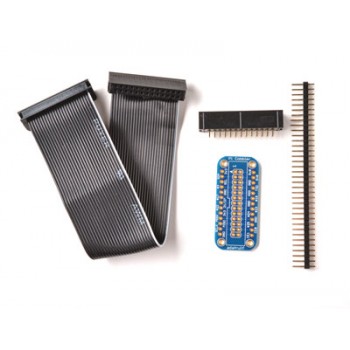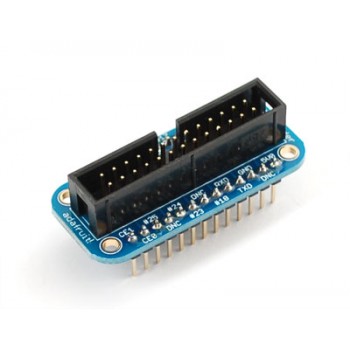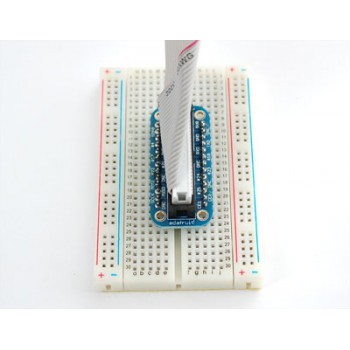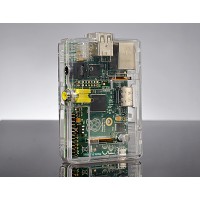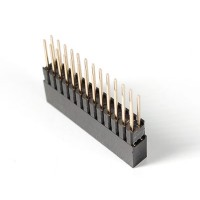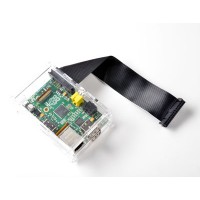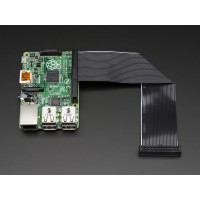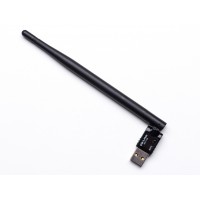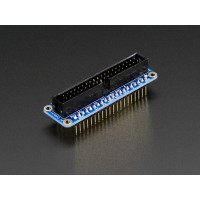
Adafruit Pi Cobbler Breakout Kit for Raspberry Pi
| Brand: | adafruit |
| Product Code: | ADA914 |
| Reward Points: | 30 |
| Availability: | 2 |
Now that you've finally got your hands on a Raspberry Pi® , you're probably itching to make some fun embedded computer projects with it. What you need is an add on prototyping Pi Cobbler from Adafruit, which can break out all those tasty power, GPIO, I2C and SPI pins from the 26 pin header onto a solderless breadboard. This mini kit will make "cobbling together" prototypes with the Pi super easy. Designed for Raspberry Pi Model B Revision 1.0.
This Cobbler is in a compact shape, which is the least bulky way to wire up. We also have the fancier T-Cobbler.
The Pi Cobbler mini kit comes with a 26 pin ribbon cable, a custom PCB, ribbon cable socket and header pins. A little soldering is required to put it together but its really easy, even a beginner can do it in 15 minutes so please click to read the tutorial Once soldered together, the cable plugs between the Pi computer and the Cobbler breakout. The Cobbler can plug into any solderless breadboard (or even a prototyping board like the PermaProto). The Cobbler PCB has all the pins labeled nicely so you can go forth and build circuits without keeping a pin-out printout at your desk. We think this will make it more fun to expand the Pi and build custom circuitry with it.
The Adafruit Pi Cobbler is compatible with both versions 1 and 2 of the Raspberry Pi Computer - for version 2 computers, note that the GPIO #21 has been replaced with GPIO #27 and that the I2C pins are now I2C port #1 instead of #0. All other pins are the same.
Please note, this kit only contains a 26 pin ribbon cable, a custom PCB, ribbon cable socket and header pins. A Raspberry Pi, breadboard,breadboarding wires, cables, components, case, power supply, etc is not included! We do stock many of those items in the shop, so check those out as well!
New! Some GPIO cables are now Adafruit Black, as we update our stock.
What is the Raspberry Pi® ? A low-cost ARM GNU/Linux box.
The Raspberry Pi® is a single-board computer developed in the UK by the Raspberry Pi Foundation with the intention of stimulating the teaching of basic computer science in schools. The design is based on a Broadcom BCM2835 system on a chip (SoC), which includes an ARM1176JZF-S 700 MHz processor, VideoCore IV GPU, and 256 megabytes of RAM. The design does not include a built-in hard disk or solid-state drive, instead relying on an SD card for booting and long-term storage. The Foundation plans to support Fedora Linux as the initial system software package/distribution, with support for Debian and Arch Linux as well -Wikipedia.
Raspberry Pi® is a trademark of the Raspberry Pi Foundation.
![]()

